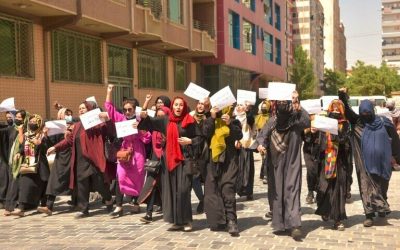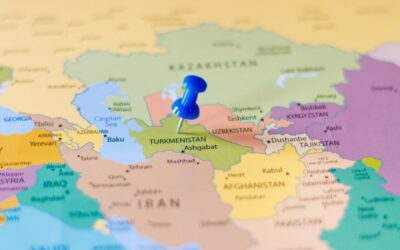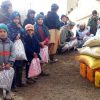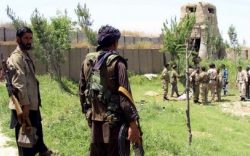
What happens in AFGHANISTAN?
16 November 2021
Jamshid Yama Amiri
Three months after the fall, Afghanistan has entered a new phase of social crisis. The most important elements of crisis are poverty, hunger and destitution. There are no accurate statistics on the number of “poor” people and the population “below the poverty line”; But the general situation shows that this figure is more than 95%.
Government officials and employees of NGOs, which were considered middle class, quickly joined the poor.
Unemployment of nearly one million government employees, lack of budget and resources in the new regime have affected the market and the income and work of all people.
In three months, the prices of raw materials and essentials have more than doubled.
The number of day laborers, street vendors and even money exchangers has increased manifold. The fruit market is crowded beyond capacity. In the Sarai Shamali market place, hand carts are stacked on top of another.
Despite an unprecedented increase in oil and gas prices, the number of taxi drivers in Kabul has multiplied. In urban taxi stands, hundreds of cars wait their turn to transport the ever decreasing number of passengers from one place to another.
Kabul is witnessing unprecedented amount of noise pollution these days.
Hand-cart vendors walk the streets of Kabul with loudspeakers, creating noise and disturbing the public peace in the city. The number of street vendors has multiplied in the last three months.
The number of beggars, especially women and children, is also increasing.
The ruling regime has been successful in rounding up drug addicts.
Despite applying harsh measures, car theft and crime rates are still high. There are also reports of kidnappings and abductions of businessmen. In some provinces, aid is being distributed to needy families, but it does not necessarily cover all needy families.
One in 10 needy and poor families has been able to receive help from international organizations.
Most restaurants and cafes have closed. Some banks have also closed their offices.
The real-estate market has been hit hard by the recent events leading to the fall of rent and sale prices by more than 50%. The automobile market has also seen drastic devaluation, vehicle prices have fallen more than 60%.
The private education sector, universities and private schools, are at brink of complete collapse. The number of students has dropped by 80%. Some left the country, some could not afford to pay the monthly fee, and some has lost believe in continuing their education.
Most importantly, the level of hope among the people has plummeted. The society, as a collective, is in despair. Almost everyone is looking to escape and leave the country. There is no hope or positive thing about future.
there is not post in layout 2

Pakistani and Iranian Leaders Commit to Strengthen Cooperation in Combating Militancy Originating from Afghanistan
Pakistan and Iran, neighboring nations with a lengthy and permeable...















